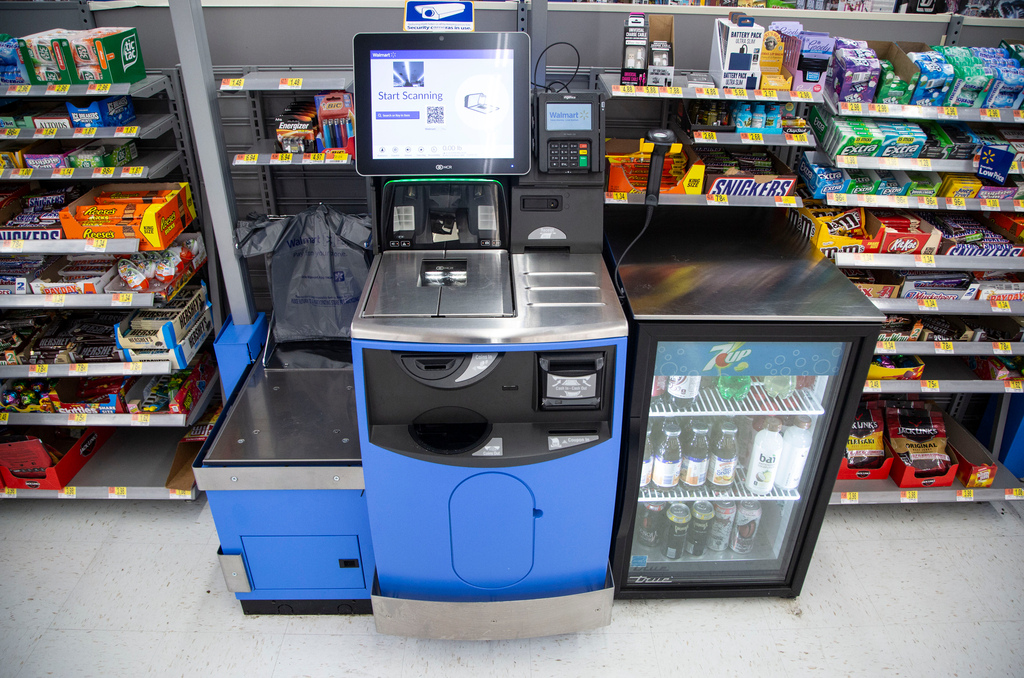
Self-checkout systems, once considered the future of modern shopping convenience, are vanishing from major retailers across the country. Grocery stores, home improvement centers, and retail chains, all of which previously employed assisted checkouts, are now reconsidering their use—all due to a surge in retail crime.

Walmart, a retail giant, is at the center of this retail evolution. A recent social media post showed a Walmart store in West Hills, California, with self-checkout lanes roped off, sparking speculation about the demise of these automated systems. The post claimed that all Walmart stores had removed self-checkouts due to a rise in unethical practices.
The retail giant's response was cryptic, stating they were "always looking at ways to innovate and improve" without confirming or denying the removal. However, this move aligns with a broader trend observed in the industry, where major chains are discreetly bidding farewell to self-checkout systems.
Read also:Molly Weasley The Heart Of The Weasley Family
Target also reportedly removed self-checkouts in San Francisco, considering it part of a trend in "defensive retailing" that may spread further. Other reports suggest that the retail giant, when allowing self-checkout, restricts it to customers with 10 items or fewer, abandoning the concept for larger shopping trips. Similarly, Costco and other retail chains have grappled with increasing theft, often attributed to the introduction of self-checkouts.
California, in particular, is witnessing a surge in retail crime, influencing these strategic shifts with a 16% increase in retail theft in Los Angeles alone. Moreover, flash mob-style attacks on retailers have become a prevalent concern.
For those still using self-checkouts, technology offers a glimmer of hope. Kroger, for instance, utilizes artificial intelligence to detect when shoppers fail to scan items correctly. If unresolved, the system triggers a red light and prompts a call for customer service assistance.
This fusion of technology and human intervention attempts to address the challenges posed by self-checkout, including unintentional theft due to glitches or oversight.

While major retailers are reconsidering self-checkouts, Amazon is taking a bold step in building customer trust through innovative technology. The company's experiment with Dash Carts at a San Mateo Whole Foods store exemplifies a paradigm shift.
Dash Carts utilize computer vision algorithms and sensor fusion, enabling automatic identification of items placed in the cart. This tech-driven approach not only simplifies the checkout process but also places a considerable amount of trust in customers.
Read also:How Did Kat Temp Break Her Hip Unveiling The Truth Behind The Incident

Beyond intentional theft, instances of malfunctioning machines, overlooked items, and errors in entering codes for produce have become increasingly common. Walmart's decision to close self-checkouts in New Mexico stores and Costco's reinforcement of employee surveillance in self-serve areas reflect the industry's acknowledgment of the complexities associated with automated systems.
As the industry grapples with the financial implications of this crime wave, the use of modern technology becomes a focal point in the ongoing debate about the future of self-checkout.



